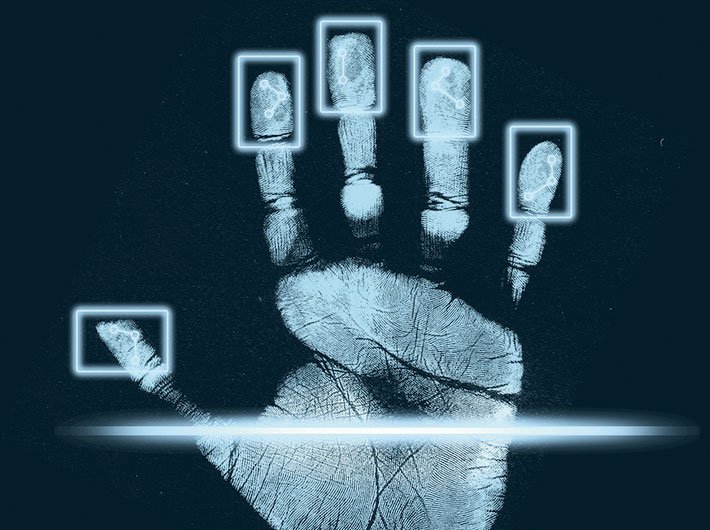Attorney general Mukul Rohatgi’s argument questioning the status of privacy as a fundamental right pushed those opposing the Aadhaar scheme before the supreme court on the backfoot. But the top law officer’s stand might have left even the votaries of the scheme in a dilemma – to choose Aadhaar or privacy.
With Article 32 of the constitution empowering a person to directly approach the supreme court in case of infringement of any fundamental right, choosing the Aadhaar scheme in such a circumstance would only amount to surrendering in advance the right to directly approach the topmost court against any executive action or law making inroads into privacy.
The government’s stand has to be viewed seriously as there are at least two other laws touching upon issues of privacy in the pipeline. The government is contemplating a standalone law on privacy and is also giving final touches to a law on human DNA profiling.
Though many would vouch for a scheme like Aadhaar for its utility in checking pilferage of funds meant for welfare services and subsidies, the government’s newfound stand may have put a heavy cost for it – giving up the constitutional guarantee ensuring a degree of privacy necessary for living a dignified life.
Rohatgi’s contention clearly meant the petitioners could not challenge the scheme before the supreme court on the ground of violation of a right which was not guaranteed under the constitution.
While the government was on the defensive earlier, the new stand may have been part of a well thought plan. The home ministry in March this year cautioned against the draft bill on the right to privacy mentioning in the ‘object’ clause that the right was part of Article 21 of the constitution. The ministry was of the view that such explicit articulation would bring the right to privacy within the domain of the supreme court.
The home ministry’s imprint can be seen in the government’s new argument, which, if accepted, would have far-reaching consequences. It would make people tread an unchartered path without knowing about the dangers ahead. Executive actions and laws, like the proposed law on human DNA profiling, which has already stirred a debate, would get immunity from judicial scrutiny on the touchstone of privacy, which had taken shape of a fundamental right over the years. Subject to other fundamental rights, the government will have a free hand in deciding the scope and ambit of privacy by downgrading it to a statutory right or even worse, by regulating it through executive orders.
The only recourse available to people against laws and executive actions violating privacy would be to take to the streets. It was to do away with such hardships faced before the independence that the constitution makers decided to incorporate Article 32 which opened the doors of the supreme court for pleas against denial of basic rights.
“If I was asked to name any particular Article in this constitution as the most important – an Article without which this constitution would be a nullity – I could not refer to any other Article except this one. It is the very soul of the constitution and the very heart of it and I am glad that the house has realised its importance,” said Dr BR Ambedkar, the architect of the constitution, in the constituent assembly while talking about the right.
The government so far had been cautious enough not to alienate people supporting the scheme. The stand taken by it to bypass the privacy hurdle was that enrolment for Aadhaar card was voluntary. However, this was coming in way of making the scheme a success.
The new line of defence now adopted by Rohatgi only shows that the government has realised that there is hardly any scope for the non-statutory Aadhaar scheme co-existing with the fundamental right to privacy read into Article 21 through judicial pronouncements. If privacy is taken to be a fundamental right under Article 21, it can only be curtailed by law and not by the Aadhaar scheme floated by the executive without a statutory backing.
In principle, there can be no opposition to use of modern scientific technology and knowhow to help improve government services provided to people. Given the direct nexus with the object sought to be achieved, the biometrics-based identification system being put in place through the Aadhaar scheme was likely to sail through as a reasonable restriction permissible under the scheme of the constitution.
The problem, however, is with the manner in which the UPA government hurried with the scheme without a legislative backing and the reluctance by the present regime to rectify the error. A statutory framework would underline the safeguards and leave no scope for change of rules after the game had begun.
The UK too faced the challenge of creating a balance between the right to privacy and sharing of personal data to enable authorities to “provide better services to citizens”. The matter was referred to the law commission which submitted a report last year recommending a legislative intervention for a clear legal structure taking into account the need for “efficient and effective government, the delivery of public services and the protection of privacy”.
The Aadhaar scheme may not in itself be repugnant to the idea of privacy but it was being opposed on account of scope for misuse. A number of complaints had been filed alleging violation of commitment made before the supreme court by the government. In violation of the court order, it has been alleged that the government was indirectly making Aadhaar compulsory by linking it to various services. Complaints have also been made over linking of Aadhaar with the voter ID card and attendance card of employees in some government departments.
Given the concern over risk of compromising privacy in the absence of any statutory framework delineating rules on collection, preservation, and use of biometric data of individuals, the scheme has already been facing opposition. The resistance is likely to increase as the coveted constitutional right to privacy was now at stake.
Though privacy developed as a fundamental right through judicial pronouncements over the past few decades, Rohatgi questioned the worth of recent smaller bench judgments when a larger bench had already ruled to the contrary in 1954.
Taking the clock back by seven decades, he pointed to the 1954 MP Sharma case in which an eight-judge bench had refused to recognise privacy as a fundamental right by a “process of strained construction”. This was followed by the Kharak Singh case in which a six-judge bench in 1962 held domiciliary visits by police violative of Article 21 but then specifically went on to note that the “right of privacy is not a guaranteed right under our constitution, and therefore the attempt to ascertain the movements of an individual is merely a manner in which privacy is invaded and is not an infringement of a fundamental right guaranteed in Part III”.
Smaller bench judgments since the 1990s, however, have held privacy to be a fundamental right, said Rohatgi, who once argued for industrialist Ratan Tata’s privacy petition.
A scan through the judgments on the issue shows Rohatgi may have a point. A five-judge bench in the Unni Krishnan case in 1993 noted that the Kharak Singh case had ruled privacy to be a fundamental right. This followed a number of decisions until a clear enunciation came in the 1996 PUCL case. A division bench of the court concluded that “the majority (in the Kharak Singh case) read ‘right to privacy’ as part of the right to life under Article 21 of the constitution”.
Incidentally, there was no oversight of the larger bench decision in the Kharak Singh case by the smaller benches but they have quoted and interpreted the ruling in their own way.
Though no larger bench has specifically held privacy to be a fundamental right to overrule the majority ruling in the Kharak Singh case, the basis on which the conclusion was drawn by the majority was overruled in 1970 by an 11-judge bench decision in the RC Cooper case.
The government may have strong grounds to get the matter reopened but given the fact that fundamental rights have touched new heights and assumed new significance with international covenants, the right to privacy should only emerge stronger with an authoritative ruling by a larger bench.

